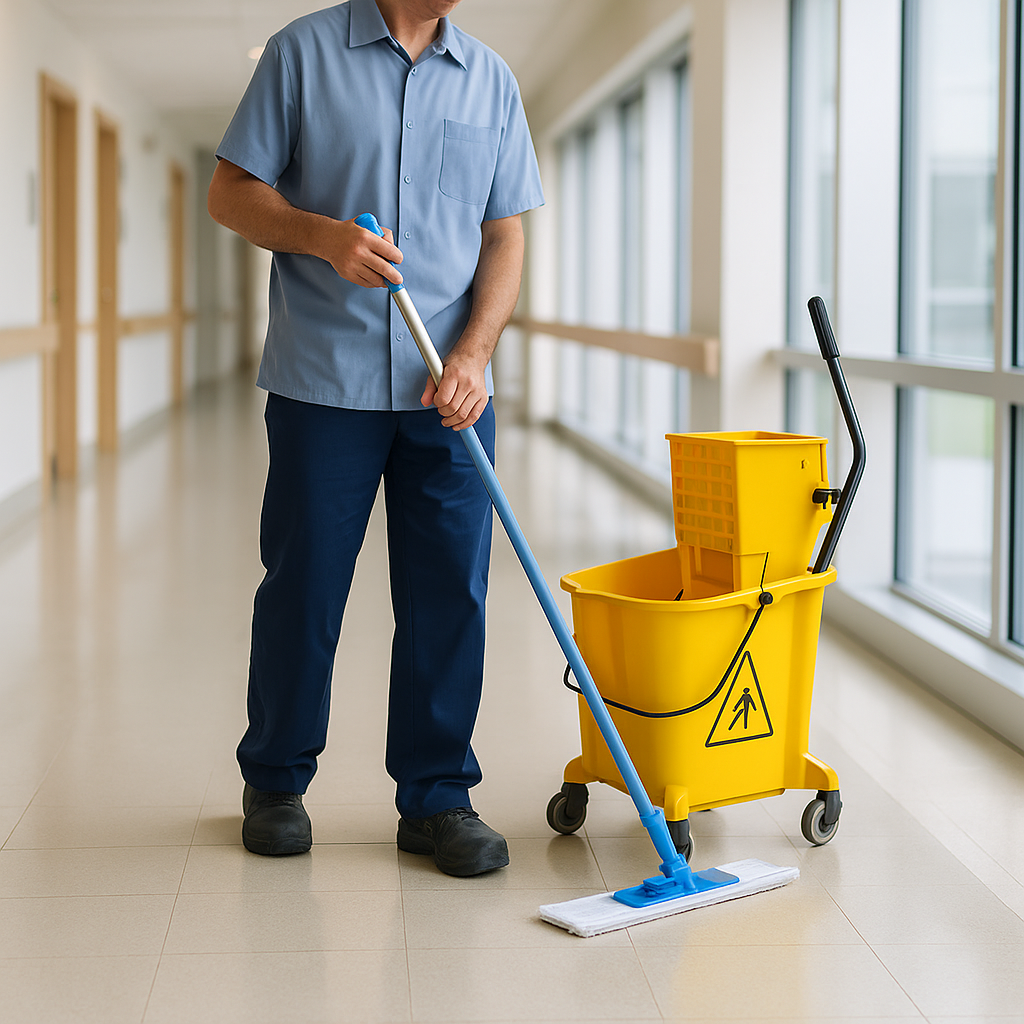
In the daily operations of rural hospitals and aged care homes, some of the most critical elements go unnoticed—polished vinyl floors, disinfected patient bays, and safely mopped communal spaces. Yet behind this everyday cleanliness lies an often-overlooked contributor: floor cleaning chemicals manufacturers. Their role is central to the safety and sanitation of healthcare facilities, particularly in regional areas where supply chains and staffing can be stretched thin.
The Rural Hygiene Reality
Maintaining cleanliness in medical and aged care environments is never optional. But in regional towns, the challenge goes beyond mopping and disinfecting. Facilities often operate with fewer cleaning staff, constrained budgets, and limited access to urban suppliers. Delays in deliveries or using substandard cleaning products can have serious consequences—ranging from infection outbreaks to falls on slippery surfaces.
Aged care homes and small hospitals across the Namoi region, for instance, continue to face workforce shortages and infrastructure pressures, as reported by Namoi News in its coverage of regional aged care service gaps. When staff are under pressure, reliable cleaning products that work efficiently and are safe for both residents and employees become vital.
What Makes a Good Floor Cleaning Chemical for Medical and Aged Care Settings?
Not all cleaning products are suitable for high-risk environments like healthcare. Facilities must ensure that the floor cleaners used are:
- Hospital-grade disinfectants capable of neutralising bacteria and viruses
- Low residue, to prevent slip hazards
- pH-balanced, to preserve the integrity of flooring materials such as linoleum, vinyl, or epoxy
- Non-toxic and odour-neutral, especially for aged care residents with sensitivities or respiratory conditions
Beyond formulation, the packaging and application instructions also matter. Clear labelling and safety data sheets (SDS) can support even under-trained staff to use products correctly—minimising risk while maintaining compliance with regulatory guidelines.
Why Local Manufacturing Matters
When supply chains falter or import availability becomes unreliable, local manufacturing becomes more than a convenience—it becomes critical infrastructure. Australian-made floor cleaning chemicals offer several benefits that align directly with the needs of regional healthcare providers:
-
Shorter lead times for delivery, which means fewer delays in replenishing stock
-
Locally appropriate formulations, suitable for Australian conditions and facility flooring types
-
Easier compliance, as products are designed to meet or exceed national standards
For facilities looking to improve supply consistency and product performance, engaging directly with Australian suppliers can offer peace of mind. One example is the floor cleaning chemicals manufacturers by Ramsey Agencies, who provide a range of solutions tailored for professional cleaning in sensitive settings. Their experience with medical-grade environments positions them as a valuable partner for regional facilities needing dependable support.
Case Studies from the Bush
Consider the case of a small aged care home in northwest New South Wales. After dealing with recurring odours and slippery hallway floors, the management decided to switch from generic supermarket-grade cleaning products to a commercial disinfectant solution from a trusted local manufacturer. Within weeks, they noticed:
-
A significant drop in complaints about chemical smells
-
Better drying times, reducing the risk of resident falls
-
Easier floor maintenance by the night staff, leading to more consistent results
Or take the example of a GP clinic in a farming town that shifted to using pH-neutral floor cleaners after repeated complaints of dulling vinyl tiles and allergic reactions. The change not only improved the floor’s appearance but also reduced surface wear and chemical sensitivities among patients.
Making Informed Choices – What Facility Managers Should Ask
Procurement teams or facility managers looking to upgrade their cleaning product suppliers should be asking the following:
-
Is the product compliant with Australian safety and environmental standards?
-
Does the chemical suit the flooring material used throughout the facility?
-
Are safety data sheets (SDS) readily available?
-
Is it cost-effective for bulk purchasing or refilling systems?
-
Does the supplier offer guidance on dilution and application methods?
As hygiene becomes more critical than ever, decision-makers are encouraged to review their current supply chains and consider whether they’re working with manufacturers that understand the specific needs of healthcare and aged care environments—particularly in regional settings.
Closing the Hygiene Gap in the Regions
Clean floors don’t just look good—they protect lives. In rural communities, where the margin for error is often slimmer, the performance of something as simple as a floor cleaner can influence everything from patient wellbeing to facility accreditation.
Policymakers and local governments also play a role here. By encouraging the use of trusted, local suppliers—particularly those who manufacture in Australia—communities may benefit from better hygiene, improved patient outcomes, and increased support for domestic industries.
The importance of supporting regional health infrastructure continues to be a key issue. As highlighted by Namoi News in their article on hospital funding reform, better procurement strategies form part of the broader picture of improving rural healthcare delivery.
Conclusion: Supporting Clean Care, One Floor at a Time
Floor cleaning chemicals manufacturers are more than suppliers—they’re silent contributors to public health. By focusing on effective, safe, and accessible products tailored to regional healthcare and aged care settings, they help maintain high hygiene standards across Australia’s most remote and vulnerable communities. For facility managers, partnering with experienced, locally aware manufacturers may make all the difference in keeping floors clean—and patients safe.